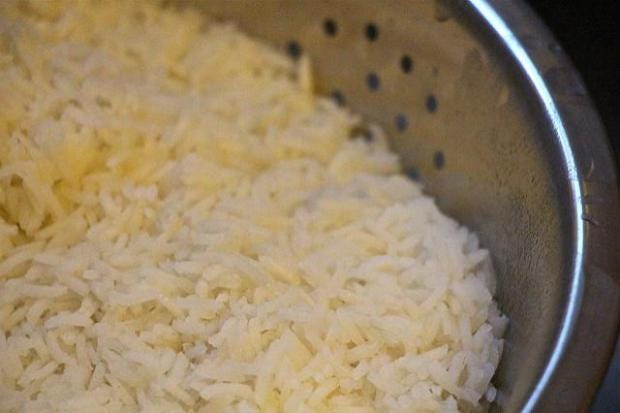
Scientists warn that the usual method of cooking rice — simply boiling it in a pan with some water — can expose those who eat it to traces of the poison arsenic JMacPherson/Flickr
Millions of people are putting themselves at risk by cooking their rice incorrectly, scientists have warned. Recent experiments show a common method of cooking rice — simply boiling it in a pan until the water has steamed out — can expose those who eat it to traces of the poison arsenic, which contaminates rice while it is growing as a result of industrial toxins and pesticides.
The chemical has been linked to a range of health problems including heart disease, diabetes and cancer, as well as development problems. While it is generally believed traces of arsenic are expelled when the rice is cooked, it has now been claimed this only takes place when the rice is soaked overnight.
Andy Meharg, professor of biological sciences at Queens University Belfast, tested three ways of cooking rice for the BBC programme 'Trust Me, I’m a Doctor', to see whether it altered the levels of arsenic.
In the first method, Professor Meharg used a ratio of two parts water to one part rice, where the water was “steamed out” during cooking — a method commonly used.
He found this left most of the arsenic present.
By contrast, when the he used five parts water to one part rice and washed the excess water off, levels of arsenic were almost halved, while in the third method, in which the rice was soaked overnight, levels of the toxin were reduced by 80 per cent.
The safest method of cooking rice is therefore to soak it overnight, then wash and rinse it until the water is clear, before draining it well and boiling in a saucepan, with a ratio of five parts water to one part rice.
According to research from Channel 4’s Dispatches and the Institute for Global Food Security, around 58 per cent of rice-based products in the UK contain high levels of arsenic.
Source: The Guardian, UK